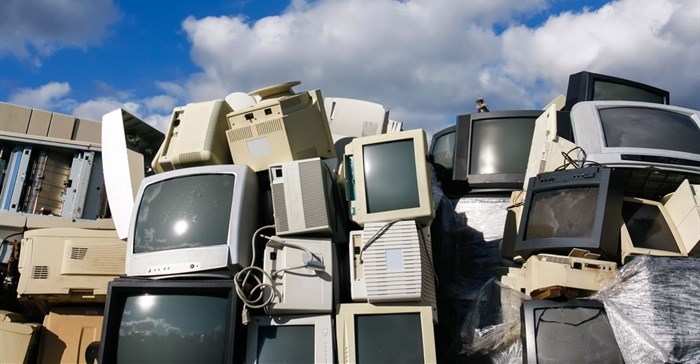






The electronic industry generates up to 41 million tons of e-waste per year from goods such as computers and smart phones. Forecasts say that figure may reach 50 million tons already by 2017. A staggering 60-90% of this waste is illegally traded or dumped.
The International Criminal Police Organisation (INTERPOL) estimates the price of a ton of e-waste at around $500. Following this calculation, the value of unregistered and informally handled, including illegally traded and dumped e-waste ranges from $12.5 to $18.8bn annually.
"We are witnessing an unprecedented amount of electronic waste rolling out over the world. Not only does it account for a large portion of the world's non-recycled 'waste mountain', but it also poses a growing threat to human health and the environment, due to the hazardous elements it contains," said Achim Steiner, executive director of UNEP.
"Through enhanced international cooperation and legislative coherence, stronger national regulations and enforcement, as well as greater awareness and robust prevention measures we can ensure that the illegal trade and dumping of e-waste is brought to an end. This will create a win-win situation, whereby rare and expensive elements are safely recycled and reused, boosting the formal economy, depriving criminals of income and reducing health risks to the public," he added.
Innovative solutions to combat illegal and unsustainable handling of e-waste are emerging. Recovering valuable metals and other resources locked inside electronic products, for example, can reduce the amount of e-waste produced, diminishing pressure on the environment, creating jobs and generating income.
The growing volumes of e-waste, municipal waste, food waste, discarded chemicals and counterfeit pesticides, all contribute to increasing pressure on the environment. The report also points to the fact that every year, roughly one third of the food produced for human consumption globally - approximately 1.3 billion tons, worth over $1 trillion - is lost or wasted.
The global waste market - from collection to recycling - is estimated to be worth $410bn a year, generating jobs and incomes. As with any large economic sector, it creates opportunities for illegal activities at various stages of the waste chain. Concentrated on making profit, operators are prone to ignore waste regulations and expose workers to toxic chemicals. On a larger scale, organised crime may engage in tax fraud and money laundering, as volumes handled go largely unregistered, allowing for substantial under- and overreporting.
Currently, Europe and North America are the largest producers of e-waste, though Asia's cities are catching-up quickly.
Export of hazardous waste from European Union (EU) and Organisation for Economic Co-operation and Development (OECD) member states to non-OECD countries is banned; therefore it is not subject to notification or licensing. Instead, thousands of tons of e-waste are falsely declared as second-hand goods and exported from developed to developing countries, including waste batteries falsely described as plastic or mixed metal scrap, and cathode ray tubes and computer monitors declared as metal scrap.
Africa and Asia are key destinations for large-scale shipments of hazardous wastes for dumping, and sometimes for recycling. Ghana and Nigeria are among the largest recipients in West Africa, although high volumes of e-waste are also transported to Cote d'Ivoire and the Republic of Congo. In Asia, China, Hong Kong, Pakistan, India, Bangladesh, and Vietnam appear to bear the brunt of illegal e-waste shipments.